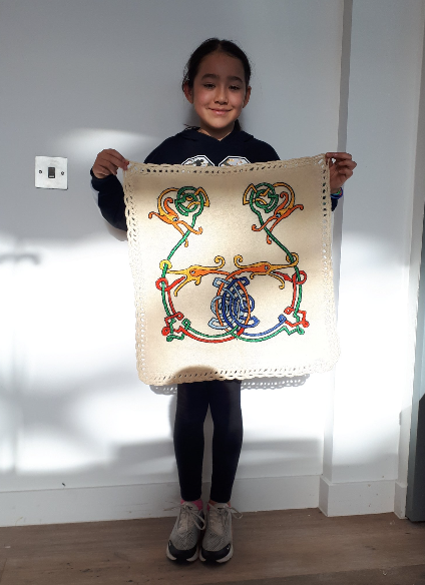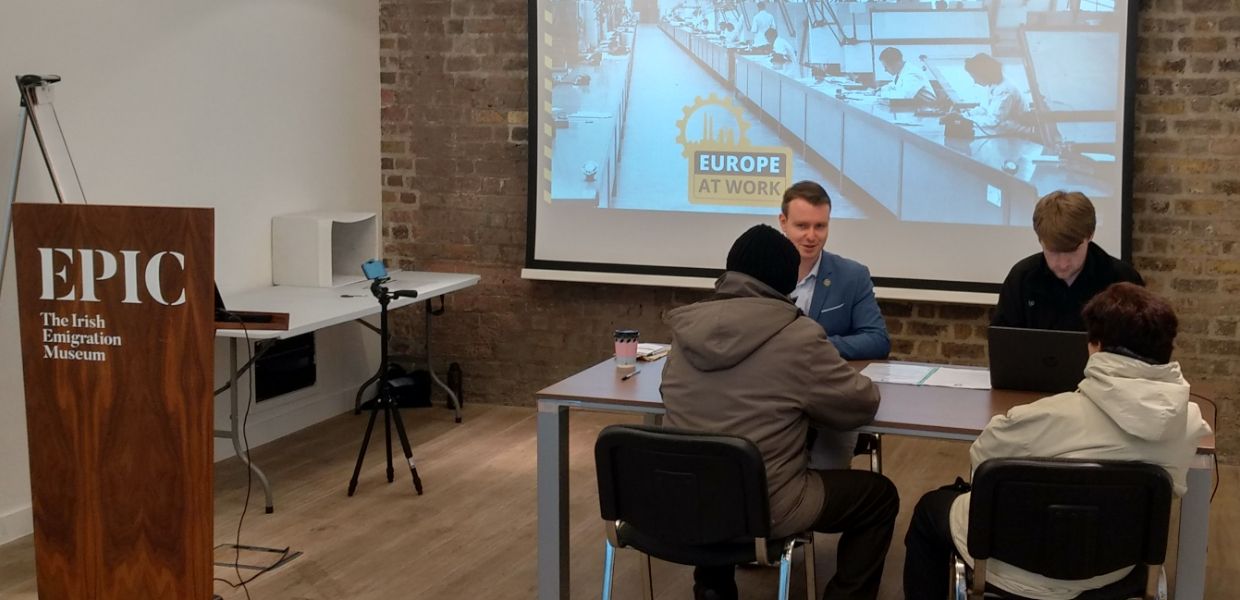At Europe at Work Collection Days, people are invited to share their stories and material relating to their working lives. Europe at Work Collection Days have been hosted across Europe in galleries, libraries, archives and museums and are an opportunity for the public to share their own individual or family stories.
EPIC’s Europe at Work Collection Day, how did it go?
It was a real pleasure to take part in the Europe at Work campaign and to welcome participants of all ages to the museum to engage in this worthwhile project. This was the first time the museum had run a collection day specifically for children and we decided to format it to better suit this target audience. We ran the project in collaboration with 4th class pupils from the Dublin 7 Educate Together National School who were approached about the project a month beforehand. We asked each pupil to interview their parents about an object that reflected their working life and to fill in a pre-designed questionnaire. They were encouraged to bring along these objects on the day itself and helped us to create a digital copy for Europeana. While some were engaged with digitisation, the others transcribed their stories directly into the Europeana platform with the help of our staff and their teachers. We split the group (25 pupils) into two and rotated them between the collecting day centre and an education workshop which we were also running for their benefit.
We also laid out some 18th and 19th century migrants’ letters so that the children could observe the difficulties in transcribing text and the benefits of learning such a skill.
Overall it was a very worthwhile experience for us and the children and the stories they shared were fascinating. A key observation of mine and a recommendation for others hoping to run similar events is to ensure all children have adequate time to complete the transcription and there are plenty of activities to keep them engaged between tasks.
Our second collection day was targeted at adults, specifically former dock workers and those who had worked overseas. We’ve found that collection days usually prove more successful when groups and individuals are invited directly rather than relying on blanket promotion. Holding them on weekends allows more people to attend who might otherwise not but it’s worth remembering that you’re competing against everything else people might occupy their limited free time with so they really need to buy into the project. A number of individuals who took part were visitors to the museum who happened upon the collection day centre and were also happy to take part but lacked objects. We opted to photograph them instead or allow them to share suitable images of their objects at a later date, which many have done. Ultimately, I would advise that to get the best results out of such projects you should generally aim to work with targeted groups and welcome any additional participants as a bonus.





